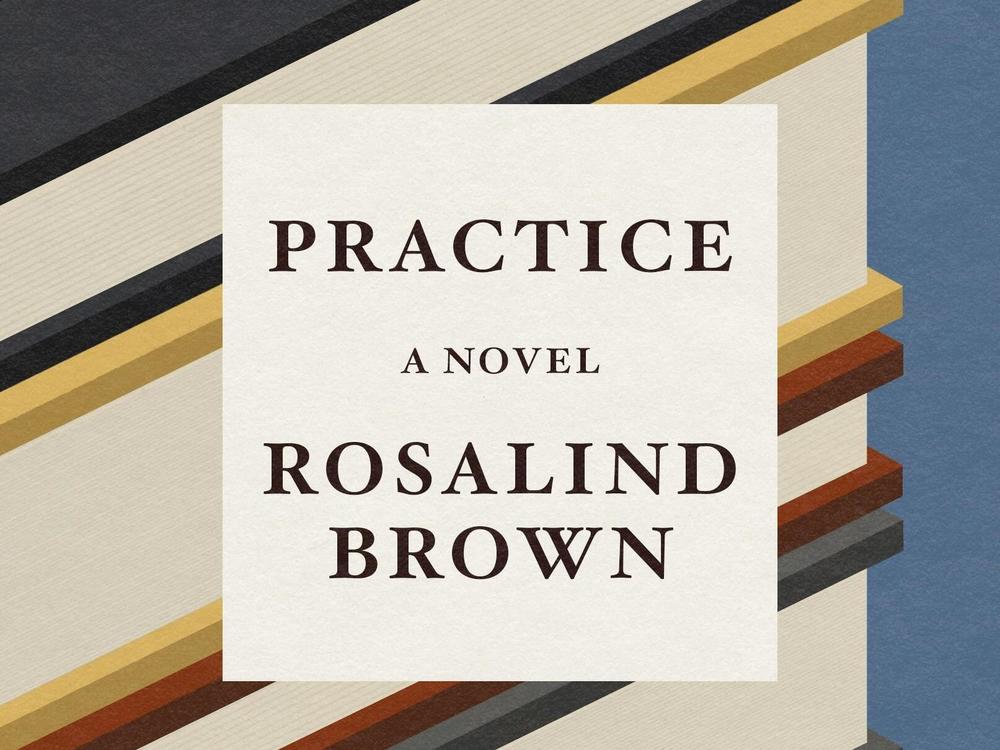Section Branding
Header Content
This absorbing debut novel about writing takes its cue from 'Mrs. Dalloway'
Primary Content
“Trying to write.” That tell-tale phrase usually indicates that there’s more trying than writing going on. The main character of Rosalind Brown’s debut novel, Practice, is an Oxford undergrad named Annabel who is "trying to write" an essay on Shakespeare’s sonnets. The essay is due the following day and Brown’s novel spans the tense 24 hours before that looming deadline.
Annabel holds herself to a rigid “trying to write” schedule: rise at 6, drink peppermint tea, water and eventually “the glory of coffee." At fixed times she does yoga, meditates and goes for a solitary walk. All throughout the day, Annabel reads, scribbles notes and catches her wandering mind entertaining sexual fantasies. She also dreads writing an essay that, as she puts it, will “fling itself against" the mystery of the sonnets, only to “dissolve like foam.”
Practice is an odd, absorbing little novel about an unusual subject: the act of reading and thinking deeply about literature. It works because it doesn’t try to be a bigger story than it is and because it’s concise — coming in around 200 pages, many of them only a brief paragraph long.
It also works because Brown herself is such a vivid writer. Here, for instance, is Brown’s third-person narrator peering into Annabel’s mind as she thinks about the challenge of saying something fresh about Shakespeare’s sonnets:
For basic sense you can read each of Shakespeare’s Sonnets in a minute or two. For a little more chewiness and analysis, five or six minutes. The trouble is keeping them apart. ... [Shakespeare] wrote them over many years, probably, and here she is trying to rustle up a theory in two days and hook it convincingly on.
[Annabel] takes a sip of the hot clear brownish water: tasting grimly of good health.
Last year, [her] tutor Sara, a medievalist, advised [all her students] to spend as many hours as they could simply sitting with the text. Don’t keep your pen in your hand, just pick it up when you really need, or else your pen will get ahead of your thoughts. ...
[S]o she is spending time with these poems: which are better company than people, they take your shape willingly, but still lightly, like a duvet does.
That long-ish passage gives you an idea of how this novel meanders through Annabel’s day, spent mostly close reading in a room of one’s own. Catch that literary allusion, please. Virginia Woolf — particularly her own day-in-the-life novel, Mrs. Dalloway — is clearly Brown’s model for how to capture fleeting insights, as well as random flotsam and jetsam generated by the brain at work.
Because Practice is set in the winter of 2009, Annabel isn’t tempted by the many distractions we now have within reach on our laptops. But even without the undeniable lure of dog videos, online shopping and Wordle, Annabel is led astray plenty by what Brown calls “little wisps of resistance”: the excessive heat of the radiator in her room; the jangle of a landline phone and the boyfriend on the other end of it.
For me, Practice offers a refreshing midsummer’s break from the sweeping, socially engaged fiction that understandably dominates our own anxious time. It’s an unapologetically small, inward-looking and, yes, privileged story.
In the novel’s final pages, Annabel, at last, writes her essay’s first sentence, which is excellent. Whether you think that sentence redeems all the self-denial and obsessive behavior that Annabel poured into it will determine whether Practice is the novel for you.

